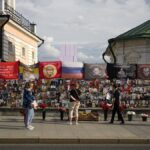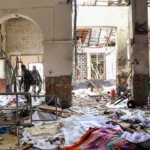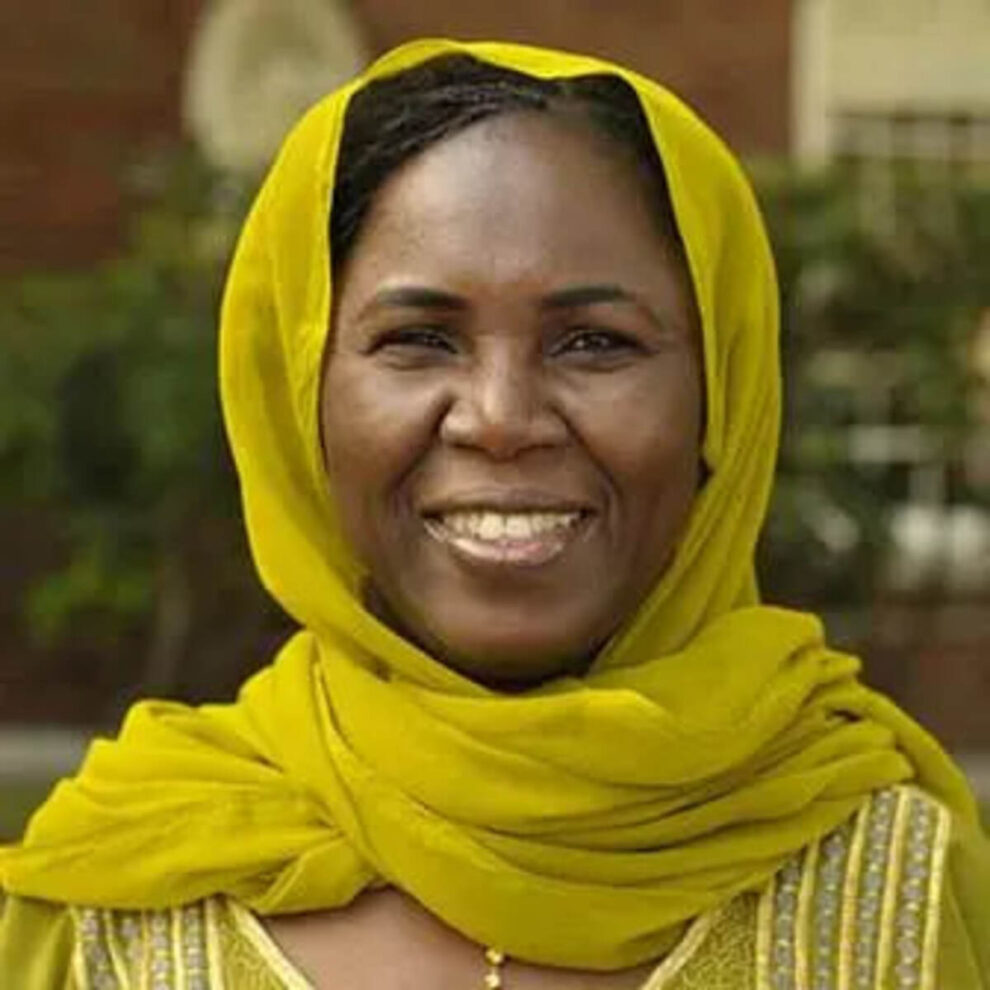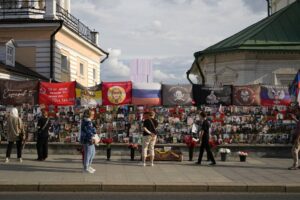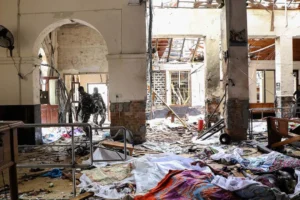Arriving in Dushanbe in the early hours of October 3rd 2023, driving over an hour to find my “Guest house” hotel, gave me the opportunities to see this awesome city “by night”. The clean streets, city of towering buildings, the beautiful monuments, extraordinary views and beautiful flowers all over the city was breathtaking. Though silent at night, those streets sprang to life in the morning. Monday to Saturday, they become “congested” with elementary and college students immaculately dressed in three-piece suits complete with ties. The parents/care givers dropping or picking up children from school, was one of the most impressive sights to behold. The women and children’s dresses are beautiful, glamourous, and always “covering appropriately”. This feels familiar to my cultural up bringing. I was easily able to blend in.
The on-going construction in city makes it dusty and one could feel its effect while walking on the streets. However, I felt in tune with nature, like a filled crisp packet flying in the wind. I can’t speak Tajik or Russian and the many I interacted with can’t speak English, yet we could communicate. The roses, mountains, lakes, rivers, and the people in particular, symbolized the soul. Over the weeks in Dushanbe and later visiting Dangara, the feelings were larger and satisfying. A black middle-aged woman, I went for a walk in the nearby garden. Curious people would stop, want to take a selfie or children, who instinctively, think I speak English, wanted to practice the English they learned at school. On one occasion, a group of teenage school girls engaged in a conversation with me on the streets for over 30 minutes wanting to tell me about the school and how they want to travel, too. The trust to approach a stranger without hesitation was fascinating. When I look back at the photos from such experiences, everything seems pure, and green. It felt the human world stopped for all to be happy, indeed for those few weeks, it was exuberant.
My first official meeting was with the Finnish delegation visiting Dushanbe, including Ms. Tuija Brax Director of the Rule of Law Center, University of Helsinki and the former Minister for Justice of Finland. Oct. 5th was the remarkable National Youth Forum day, bringing together over one hundred and fifty students from all over Tajikistan, hosted by the Rule of law and Access to Justice initiatives headed by Shama Farooq, under the banner of the United Nations Development Program. Distinguished officials graced the occasion, which included: Ms. Nigina Alizoda, First Deputy Minister of Justice; Ms. Marhabo Naimzoda, Judge of the Supreme Court; Mr. Alisher Haydarov, Head of Union of Advocates of Republic of Tajikistan; Ms. Salome Steib, Country Director of the Swiss Cooperation; and Dr. Lazima Onta Bhatta, UNDP deputy resident representative.
On October 20th, our conversation after watching the Film, “The Social Dilemma” with students, centered around the questions: Whether the change is how social media is regulated or how users regulate the use of social media? There was a general understanding that many social media outlets contribute to polarization, hate, and gridlock and that the technology companies’ business model of extracting our data at scale amounts to users being individually profiled to be micro-targeted for advertisements and other unknown surveillance. The purpose of technology companies capitalizing on users’ ignorance and identity, while stimulating engagements of users to spend more time on their platform could be to manipulate, profit and control the users.
Students agree that there needs to be transparency, accountability and responsibilities on part of the technology companies. There needs to be protection of young children by having filter bubbles i.e. (age appropriate design code), to blog, prohibit the collection and use of children’s personal data, enacting a ban on surveillance advertising, and banning manipulative marketing tactics and addictive design features for users of a certain age. Other suggested solutions include taxing the technology companies’ collection of user data, the protection of privacy. and desensitizing massive never-ending data collection by legislation, consideration of antitrust reform by breaking up big technology companies into smaller firms, allowing for competition, etc.
The “rule of law” and “access to justice” ambitious project within which I offered a perspective, plays a fundamental role in most contemporary legal systems. However, the significance and meaning of these terms varies widely across communities, with their understanding nuanced as applied to each legal system, culture, and tradition. Thus, a historical and geographical context applies to a specific jurisdiction broadly understood sometimes as an aspiration of nearly all legal systems and continues to embody its concepts in the continuum. Speaking to some of the women at the local markets, and elsewhere, it seemed they embraced their customary role as mothers and had broken free from expected gender roles, a positive stride.
Part of my engagement was the Keynote speech at the National Youth Forum in Dushanbe on the youth-sensitive digital disruptions of human rights. I participated in mentoring session with students, training sessions with university faculty on teaching human rights and social justice, made presentations on women’s empowerment for the rule of law to justice sector officials including from the Ministry of Justice and Supreme Court,. I conducted a training session for the staff of the Committee on Women and Family Affairs on gender-sensitive approaches in preventing violent extremism and on culturally sensitive practices on preventing violent extremism. Over subsequent weeks, I met with Judges of the Supreme Court of Tajikistan, serving and retired Professors of Universities and higher Institutions, Union of Advocates leaders and members and representatives. I visited Dangara State University, the Tajikistan Ministry of Justice, and spent two days of workshops with awesome Professors in Dushanbe. It was absolutely a rewarding experience.
Mr. Lenni Montiel was easy and pleasant, his occasional strolling around offices as the head of UNDP in Tajikistan, was leadership in action. Interesting is the dynamic at the UNDP, 39 Aini Street Dushanbe office. I felt welcome and the atmosphere could be tempting to lose yourself in, while working. The daily tasks of the staff, metaphorically, keeping the curtains drawn, not thinking about the people around you—this wasn’t the case at this office. They work hard and care about each other. On one occasion, one of the secretariate staff walked to the office of a senior staff for a hug and exchange of pleasantries—a rarity in some spaces I shared elsewhere. At the staff canteen, there was lots of chatting, catching up, and laughter which made the UNDP office worth hanging around. These were some of the quintessential staples of my visit that will remain most memorable.
It feels true that as one start to walk on the way, the way appears, especially when you let yourself be silently drawn by the strange pull of what you really love, for me the law and its rule. It will not lead you astray. So I keep seeking both, in order that it will seek me too. We unfold our own myth, by raising our words, not voice, because in it, is the rain that grows flowers, not thunder, said Rumi. Believing always that I may not be a drop in the ocean, but maybe, just maybe, the entire ocean is a drop of us all.
The city’s roars and energy are infectious. The magnificent sights, tall buildings with grandeur and might, our walk with Shama a chance to connect, great way to spend quality time together. The Opera performance, the Art exhibition, the delicious dinners, all were gifts. The Green Wood House visit with Lazima Onta Bhatta, Shama Farooq, Aziza Mavlyanova, Zarina Juraeva, with her beautiful children, Samir and Safiya, Oksana Vovk, Yuliia Samus, Zilola Akhyoeva, Gulchehra Ziyaeva, Zarrina Madamilova, Firuza Bobokhanova—topped it all!
We all are a manuscript of a divine letter, a mirror reflecting a noble face and that the universe is not outside of us, because inside of ourself is everything that we want, getting loose around our humanity. Not necessarily always wanting to change the world, but changing oneself through which the world could change, was reaffirmed by my experience in Dushanbe. We can’t act small anymore, because we all are the universe in ecstatic motion.
[1] I acknowledge with gratitude the Rule of Law and Access to Justice Initiatives Project in Tajikistan, especially its exceptional project manager, Ms. Shama Farooq, and her guidance and generosity, as well as the helpful Ms. Aziza Maylyanova. The Prevention of Violent Extremism Team led by Mr. Yusufjon Kholov, Zarina Juraeva, was an excellent resource and I am thankful for all the support staff, Zarrina Madamilova, Zilola Akhyoeva, Tahmina Jumabaeva as well as many other unsung heroes.Source: News Diary Online


